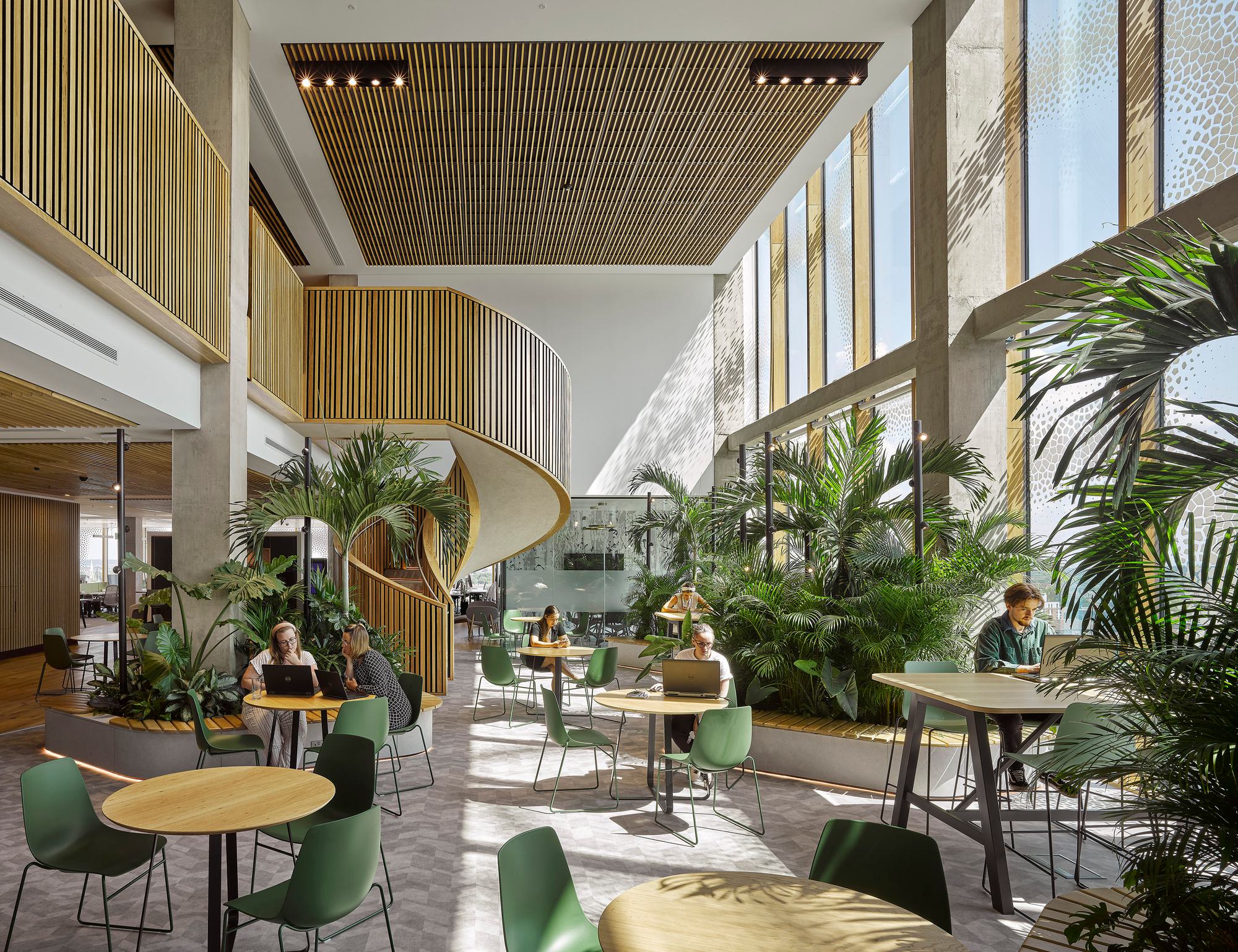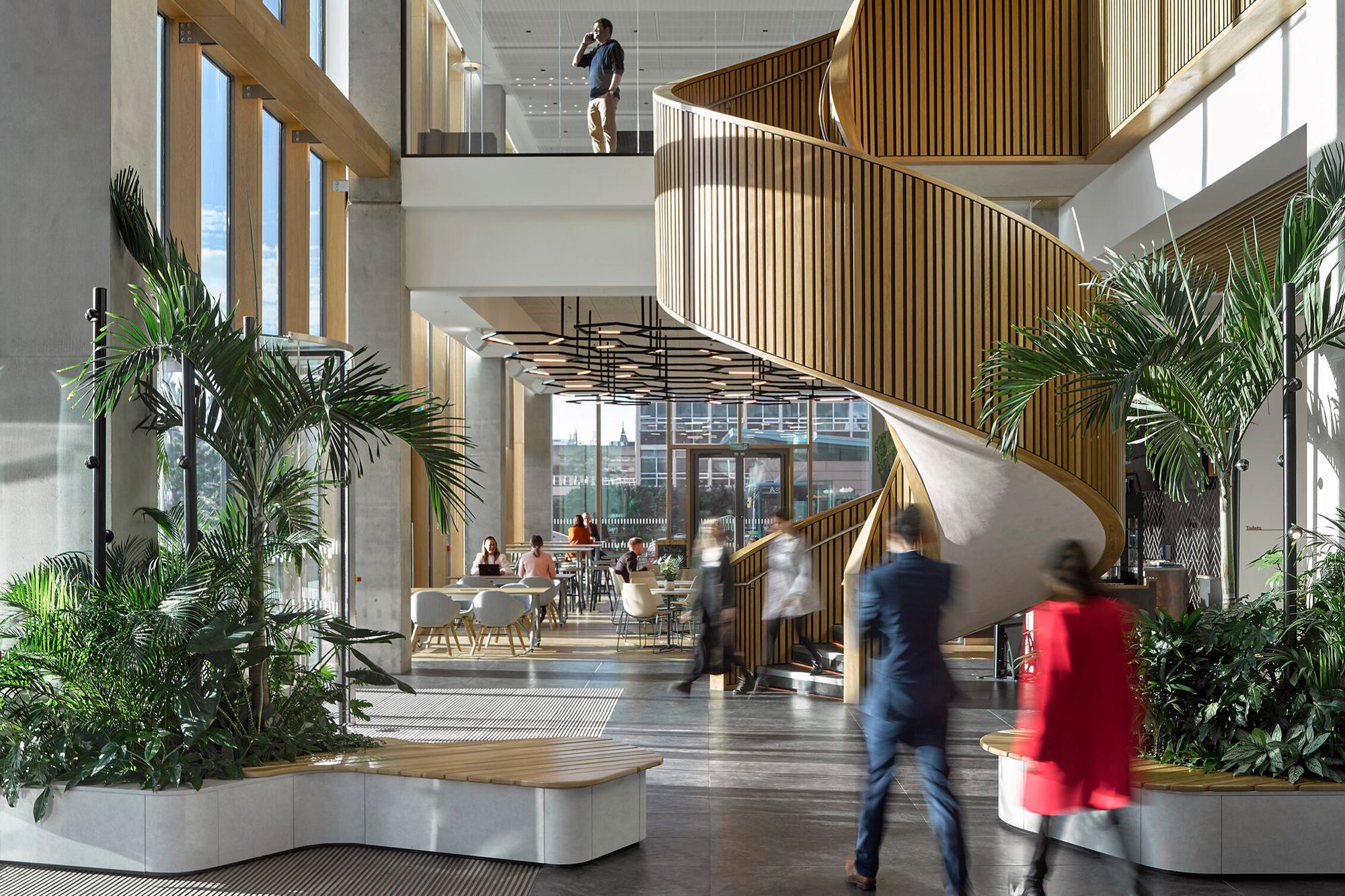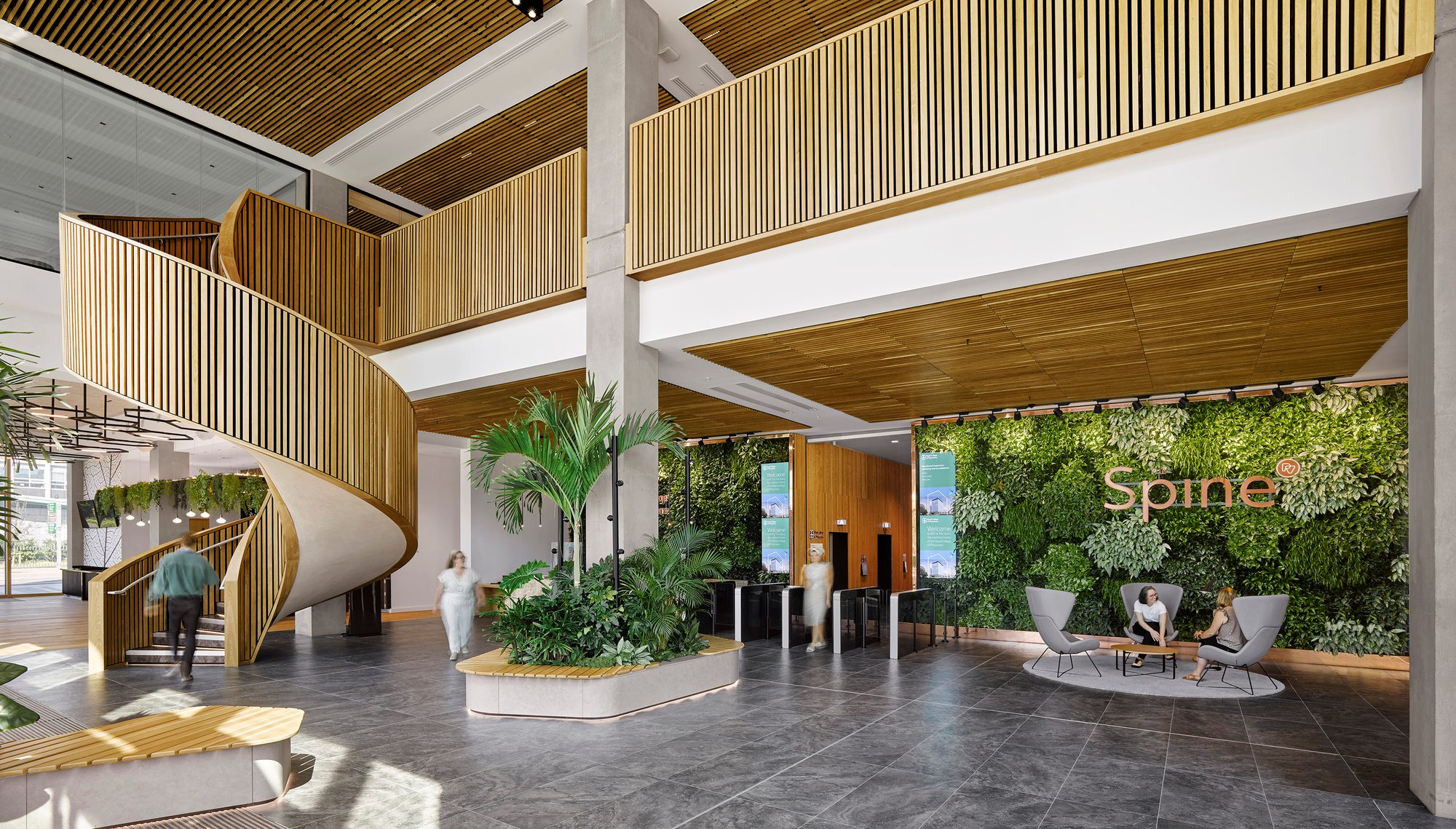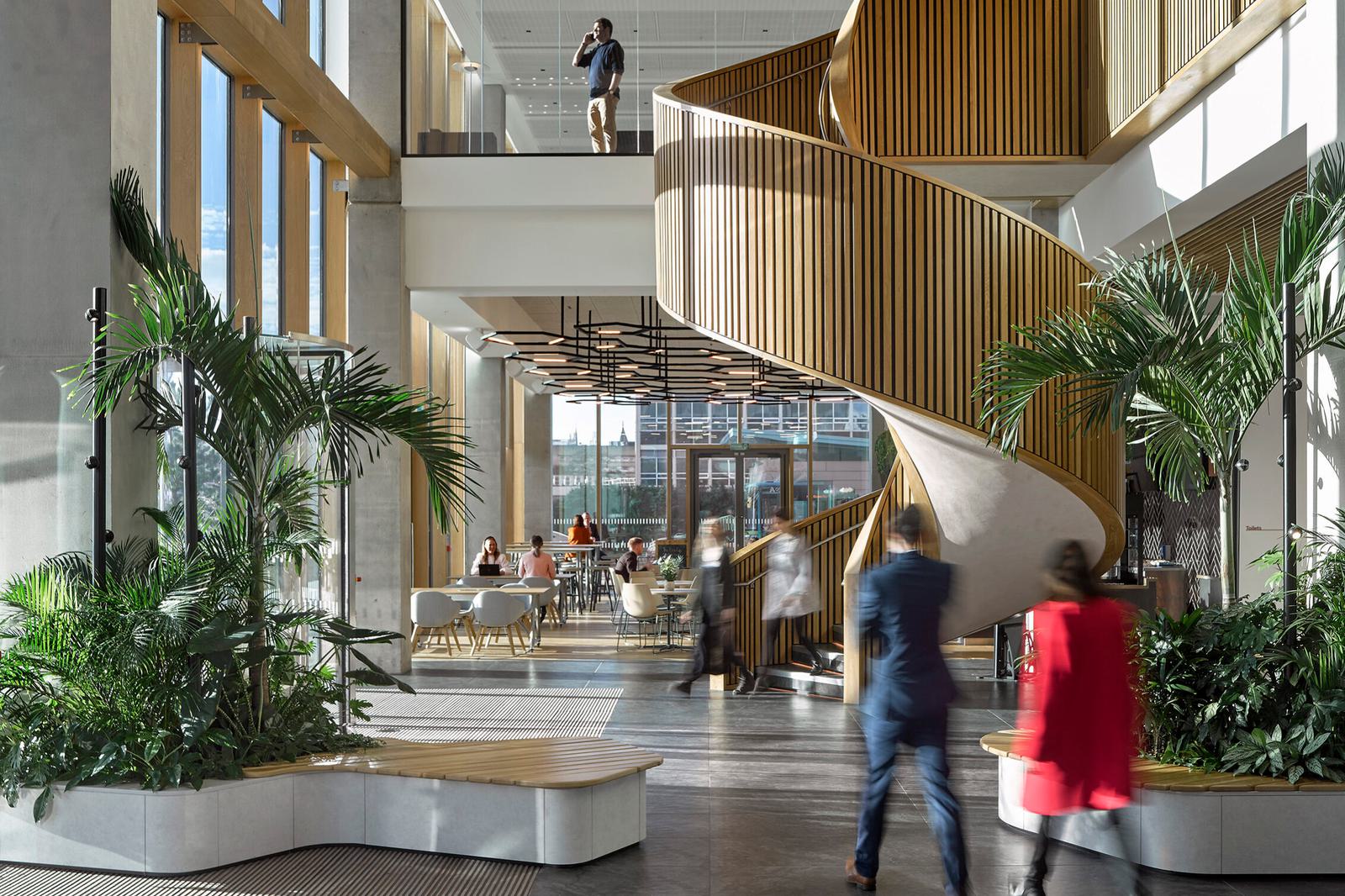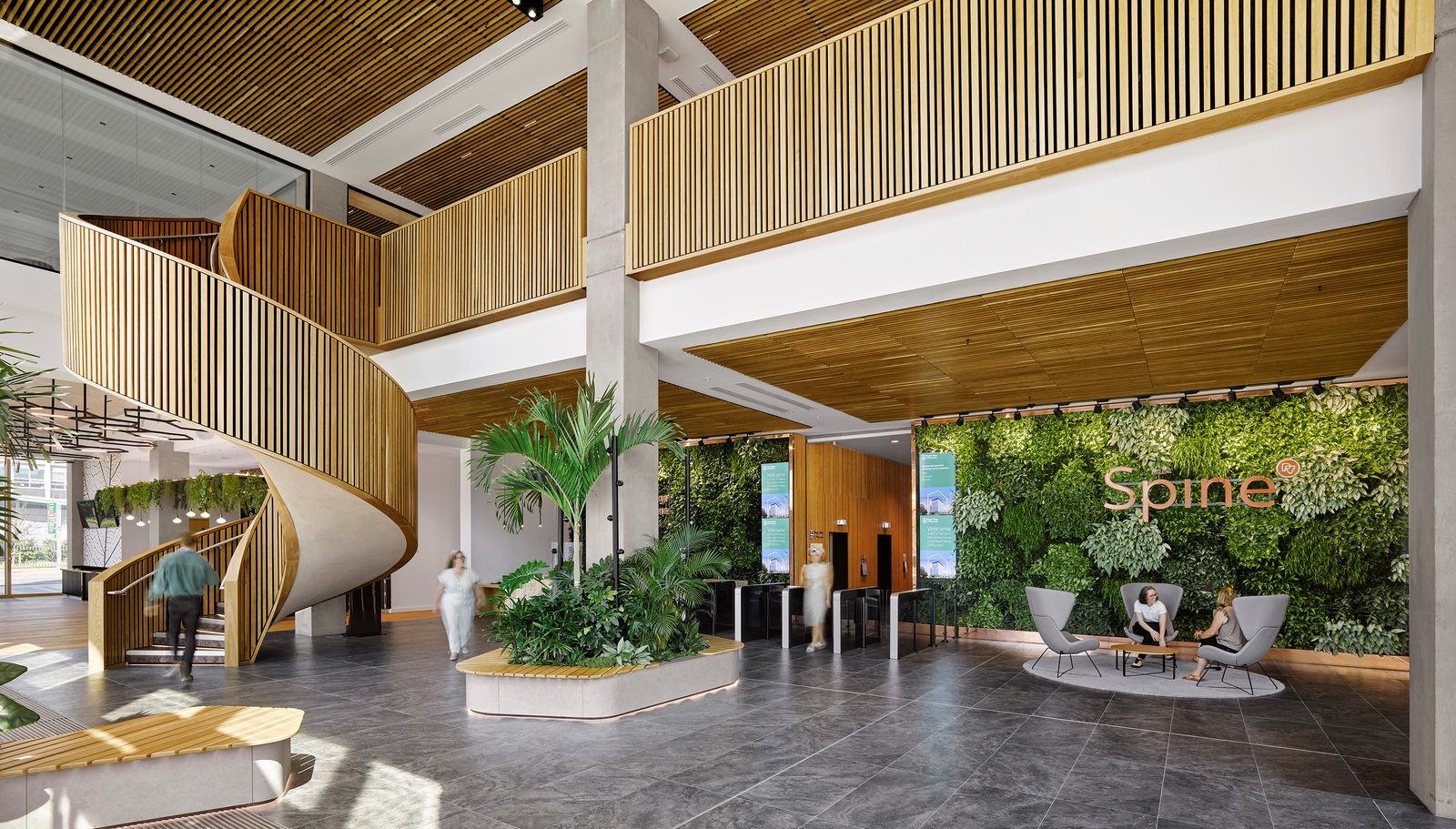
Practice News
Decarbonisation and healthy buildings: Insights from our roundtable discussion in Liverpool
by AHR
We recently gathered with industry professionals to explore the pressing topics of decarbonisation, sustainability and the principles behind designing healthy buildings.
Held at The Spine—celebrated as one of the healthiest buildings in the world—the event provided an inspiring setting for open and thoughtful conversations about how we can create a more sustainable and inclusive future.
The discussions focused on practical strategies for achieving sustainability, balancing immediate needs with long-term goals and fostering collaboration to tackle the complexities of decarbonisation.
Read on for more.
1. How are we approaching the practical steps for decarbonisation?
The introduction of the UK Net Zero Carbon (NZC) Standard was highlighted as a pivotal moment for the industry, providing clear benchmarks for both operational and embodied carbon.
“Having a unified standard gives us the clarity we need to take meaningful action.”
This clarity, combined with tools like PHPP modeling, allows for precise calculations of energy savings from even small design changes, such as optimising roof insulation or glazing.
Discussions again emphasised the need for a circular economy approach, considering not just the manufacturing but also the disposal and reuse of materials. As one participant noted, “We can’t just think about how materials are made; we also need to plan for what happens at the end of their life.” Advances in material manufacturing are aligning with these principles but ensuring the infrastructure for recycling and reuse is equally critical.
Submissions are now open for projects to participate in the UK Net Zero Carbon Standard pilot testing. To register your project and learn more, visit the website here.
 Another thought provoking discussion
Another thought provoking discussion2. Balancing short-term needs with long-term goals
The tension between addressing immediate operational needs and planning for long-term sustainability was a recurring theme. Participants acknowledged the temptation to delay action but emphasised that starting small can lead to meaningful progress. It’s easy to feel overwhelmed, but taking incremental steps now is how we make real change.
Clear communication and governance were also highlighted as critical. Decisions need to be evaluated not just through a financial lens but with a focus on their carbon impact.
Discussions also touched on how government policy directly influences attitudes toward decarbonisation. Clear legislative direction, combined with consistent incentives, was seen as essential for fostering greater alignment and accelerating progress across the industry.
Balancing ambitious targets with financial realities was a recurring theme, but the discussion highlighted the growing availability of innovative technologies designed to help organisations reduce energy consumption. Tools like our retrofit toolkit are proving to be very effective, offering real-time actionable insights that empower informed decision-making during the early stages of projects.
This immediacy helps facilitate feasibility discussions without the delays often associated with traditional modeling methods. While not intended to replace more advanced engineering models, the toolkit delivers impressive accuracy in early assessments, making it a valuable resource for driving timely and productive conversations around decarbonisation.
Discover how our retrofit toolkit can help you take the next step here.
3. Healthy and inclusive building design
With the event held in The Spine, the discussion naturally gravitated towards the principles of wellness-focused design. As a living example, The Spine embodies ambitious air quality standards, biophilic elements and a commitment to inclusivity, all of which were key themes of the event. This real-world case study underscored how thoughtfully designed environments can transform wellbeing, with post-occupancy evaluations revealing tangible benefits, such as enhanced happiness, productivity and overall health.
Learn more about the project here
The conversation also delved into evolving approaches to neurodiversity and inclusivity, highlighting the importance of creating spaces that meet diverse needs. Recognising the shortcomings of traditional overlit and sterile environments, the conversation emphasised the shift towards more intentional, inclusive design practices aimed at supporting all individuals.
Did you know?
The Clinic Building at the University of Salford’s School of Health and Society will prioritise inclusivity and accessibility through equity of access, trauma-informed design and thoughtful consideration for neurodiversity. Discover more about our design here.
4. Collaboration and unified standards
Collaboration was recognised as a cornerstone of successful decarbonisation efforts. Early engagement with experts ensures that projects align with sustainability goals from the outset, avoiding costly retrofits later. “Bringing the right people in early is crucial for making informed decisions that align with long-term goals,” one attendee remarked.
The group also praised the UK NZC Standard for providing a roadmap to guide the industry and ensure consistency across projects. Industry tools that measure decarbonisation progress and value for money were seen as essential in ensuring accountability and driving better outcomes.
5. Reflections and the path forward
The event underscored the need for cultural change to challenge ingrained decision-making practices that prioritise short-term savings over long-term sustainability. Collaboration and open dialogue were seen as essential for sharing knowledge and building momentum toward decarbonisation goals.
International advancements in electrification and sustainability practices also served as a reminder of the need to maintain leadership in the UK. The group collectively acknowledged the importance of integrating decarbonisation and wellness into every stage of building design and operation, recognising that sustainability is not just a financial decision but a moral imperative.
Through collaboration, innovation and a shared sense of responsibility, we can build a future that benefits both people and the planet, ensuring lasting positive impacts for generations to come.
To learn more about how we are achieving decarbonisation through retrofit, visit our perspectives page here.
Posted on:
Jan 14th 2025
Topics:
Share on
Related Articles
Practice News
Insights from Manchester: A collaborative approach towards decarbonisation
Six months on from our last session in Manchester, it was a pleasure to gather once again with industry professionals to explore practical pathways towards healthier, more sustainable buildings.
Date: 25 Nov 24
by AHR

Practice News
‘As we transition away from fossil fuels, we're not going to leave the community behind:’ Insights from Leeds
At our Leeds decarbonisation roundtable, we continued the conversation with professionals from across the industry, exploring pathways to achieving a greener future.
Date: 30 Oct 24
by AHR
Practice News
'The greenest buildings already exist:' Insights from our decarbonisation roundtable event in Birmingham
Industry professionals joined us in Birmingham, to discuss how we can achieve decarbonisation and what a ‘Healthier Building’ truly means.
Date: 16 Oct 24
by AHR
Practice News
Continuing the important conversation around decarbonisation in Glasgow
In our second decarbonisation roundtable event of the year in Scotland, we continued to debate the challenges and opportunities we’re facing on the route to net zero carbon in the built environment.
Date: 14 Oct 24
